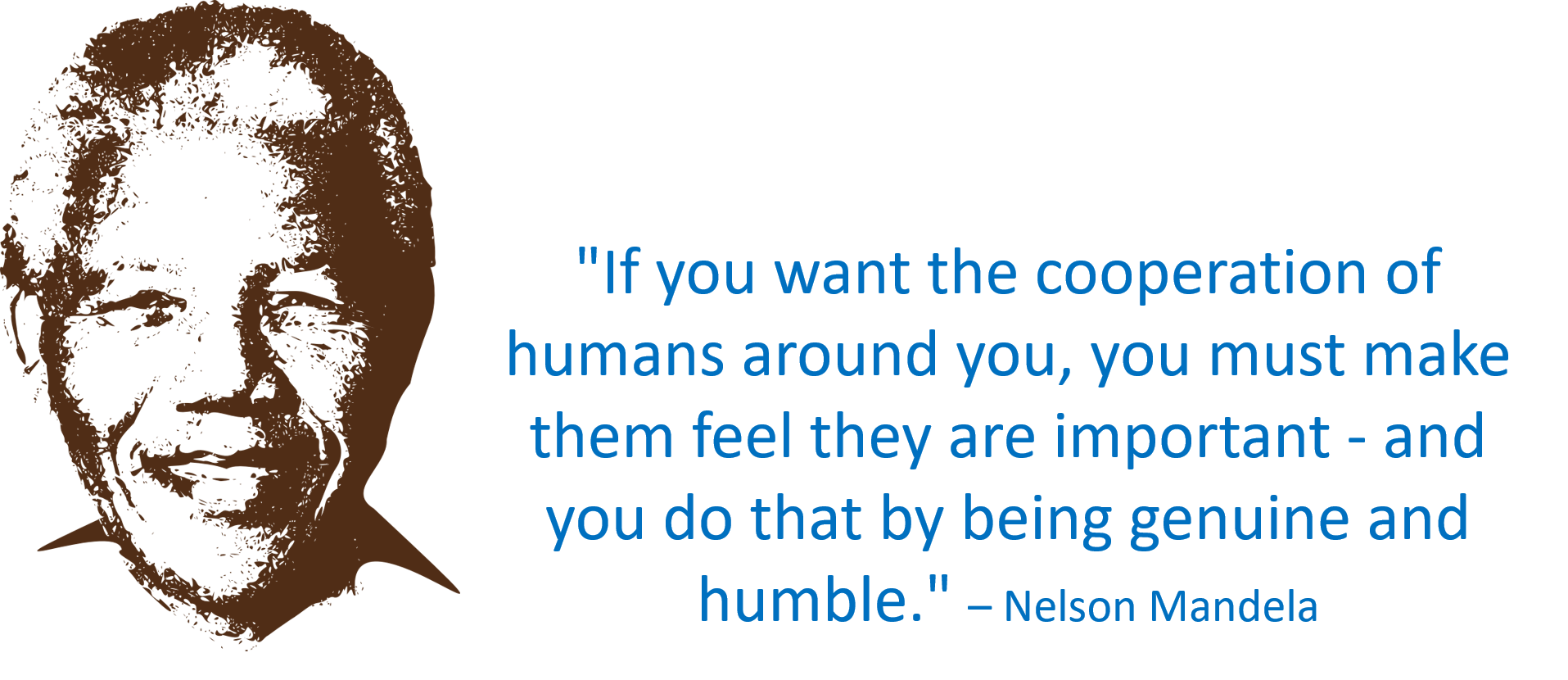
Lead Others the Way They Need to be Led
“Organizational culture mimics leadership and toxic workplaces are born through the unaddressed pain of lost individuals placed in positions of leadership.”
It was the day that changed his life. As a child, John remembered mom coming home after a long day’s work and he could see the stress behind her smile. He would hug her and promise to one day make enough money so she could quit her job. Each Sunday he watched as she searched the employment section of the newspaper for better opportunities, but year after year she grudgingly worked to support the family after father passed. Only when John became an adult did mom share the reasons behind her stress. Dealing with father's death was hard, but adding to her anxieties - she worked for an awful overbearing boss. John tried his best to keep his promise to take care of mom, but she passed away before he had the opportunity. It was this day that John vowed to be a better person and lead others the way they needed to be led.
Despite the billions spent on leadership development, workplace stress caused by toxic bosses is all too common. According to WebMD, people who work for bad bosses are at higher risks for developing heart disease and Jeffrey Pfeffer, a professor of organizational behavior at Stanford Graduate School of Business, linked workplace stress to 120,000 deaths annually in the United States.
We all know of or have experienced toxicity in leadership. Unfortunately, disparaging leaders are blind to their incompetence and perceive a reality that contradicts with actual performance. Toxicity in behavior is deeply disapproving as this leadership type blames low morale on others, equates respect with fear, takes credit for the work of others, and are masters of manipulation. Regardless of the exhibited characteristics, disruptive leaders lack self-awareness and the remote ability to accept that they are the issue.
““It is the genuine parallels between the walk and talk of leaders that builds trust and creates connections between employees and colleagues."
On the other hand, the personal and professional beliefs and traits of authentic leaders mirror each other without contradiction. It is the genuine parallels between leadership walk and talk that builds trust and creates connections between employees and colleagues. Authentic leaders are courageous, bold, virtuous, emotionally intelligent, fair, and just – traits lacking in toxic leaders.
However, when personal accountability is accepted, I believe that change is possible.
How does a leader move toward authenticity? By asking the bigger question of “Who am I?” Getting to authenticity is easier said than done, but simply stated, it is through a journey of self-reflection and self-awareness cultivated into self-acceptance. The foundational key is openly and confidently living in full acceptance of not only your abilities but your inabilities, which subsequently permits others to do the same. Also, walking in authenticity emphasizes the importance of relationships, community, and genuine care for others.

In Africa, there is the Ubuntu leadership philosophy, which means I am because you are. When asked about the Ubuntu concept, Archbishop Desmond Tutu, stated it is compassion, understanding, caring, forgiving, and the very essence of being human. Also, Nelson Mandela told the story of “in the old days when we were young, a traveler through a country would stop at a village, and he didn’t have to ask for food or water” it was simply given. The sincere concern for others is a call to service that supports individual growth toward who you were created to be – a more authentic and genuine form of yourself. At the heart of Ubuntu philosophy is that no one person is self-sufficient, we are all interdependent and dependent on each other.
In regards to inabilities, I question the actual existence and wonder if they are instead personal gifts of idiosyncrasy that makes us – us. Are flaws essentially unique qualities that represent how special we are? As a leader, how can you walk confidently in authenticity and expect others to trust you when you struggle with accepting and leading yourself.
According to Aristotle, “The whole is greater than the sum of its parts.” When you, as a leader realize what society has defined as deficiencies, flaws, and weaknesses are actually idiosyncratic gifts, the movement toward unconditional self-acceptance becomes easier. One should always strive for personal betterment, but if due diligence reveals to no purpose, confidence supports communal interdependence through the hiring and empowering of people who compensate where you lack. The uniqueness of our gifts is what comprises the whole of humanity and cultivates value in synergistic diversity to be used for the benefit of others.
“The desire of your heart to lead others may not be your life’s purpose.”
Are you meant to be a leader? Walking in critical self-reflection while processing your life’s story is the path toward authenticity. Sometimes hard facts are realized in that the desire of your heart to lead others may not be your life’s purpose. With due diligence, hard work, and determination, anyone can become a good leader and move from toxicity to authenticity. However, lack of self-awareness and self-acceptance results in forced leadership, manifesting as leader toxicity. Moreover, because organizational culture mimics leadership, toxic workplaces are often born through the unaddressed pain of lost individuals placed in positions of leadership. Sadly, it is the misplaced bosses who fail to self-reflect but instead believe they are upright in their leadership positions.
So, what makes authentic leaders great?
- They allow regularly scheduled time for self-reflection and continued personal growth.
- They are comfortable with admitting they don’t have all the answers and rely on and trust the expertise and knowledge of their staff.
- They encourage open 360-communication, always speak last but openly and honestly, which encourages their staff to communicate their ideas and opinions freely.
- They exude confidence in embracing their idiosyncrasies which inspires others to do the same.
- They are service leaders who take care of others while also accepting accountability.
- They accept responsibility for their actions and admit when they are wrong, beckoning an environment of teamwork, trust, and honesty.
- Lastly, they are emotionally intelligent and embrace humor, laugh at themselves, and create relaxed atmospheres, which minimizes workplace stress and sparks creativity and innovative minds.
It is essential to also reflect on how you would want to be treated. You never know what someone is going through. Leading with compassion, understanding, and open-communication are foundational to leading people the way they need to be led.
What do you think? I am very interested in hearing your thoughts.
Please feel free to share, ask a question, or leave a comment.